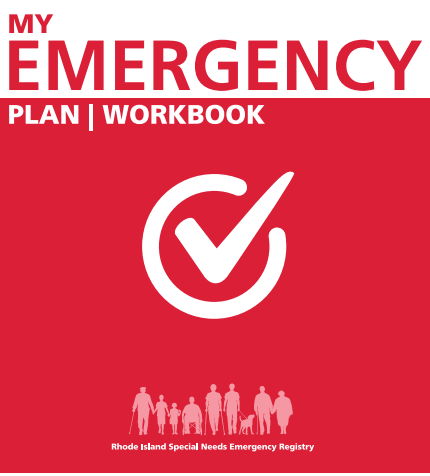RIDOH Issues Seasonal Reminders Related to Hurricane Preparedness

The Rhode Island Department of Health (RIDOH) is issuing a reminder about important steps people should take to stay healthy and safe during the Atlantic Hurricane Season, which runs from June through November.
Hurricanes can cause illness, injury, damage to houses and buildings, and environmental concerns like flooding and mold. There are important steps that Rhode Islanders can take now to protect themselves from the effects of hurricanes.
The National Oceanic and Atmospheric Administration’s (NOAA) National Weather Service forecasts an Atlantic hurricane season with above-normal activity. This means there could be more storm activity in the Atlantic than in previous years. Between 1991 and 2020, there was an average of 14 named storms, seven hurricanes, and three major hurricanes in the Atlantic. On May 23, NOAA announced that it predicts between 17 and 25 named storms for this season. Of those, eight to 13 are forecast to become hurricanes, including four to seven major hurricanes.
Make a Plan
Make a plan for what you would do if a hurricane or flooding impacted your home, and for what you would do if you had to leave your home.
In making that plan, think about what you would do if you lost power, and how you would communicate with friends and family. You also want to think about how to get to cooling centers in your area. You can find a list of cooling centers by city or town on the Rhode Island Emergency Management Agency website https://riema.ri.gov/planning-
At health.ri.gov/emergencyplan, you can find the “My Emergency Plan Workbook.” This workbook will give you tips and help you write out your own emergency plan.
Build a Kit
Build a home emergency kit that includes items for everyone in your household for three days. This means one gallon of water per person (or pet) per day, and food that won’t go bad. Some examples are dried, canned, or preserved foods like beans, honey, granola bars, and canned fruits and vegetables. You should also include prescription medicine, a first-aid kit, and tools like a manual can opener and a wrench.
You should store your emergency kit in a waterproof container or bin. If you build your kit slowly and before a storm comes, you can spread out costs and avoid competing with people for the same resources (like bottled water and toilet paper).
Stay Informed
Before, during, and after an emergency, it is important to follow information and guidance coming from public officials. Remember, forecasts change, so it is important to follow storm updates. You can follow updates on TV and radio or from a trusted source on social media. You can follow RIDOH and other agencies like the Rhode Island Emergency Management Agency (RIEMA) and the Rhode Island Department of Environmental Management (DEM) on Facebook, X (Twitter), and Nextdoor.
People who think they may need extra help during an emergency, like a hurricane, can enroll in the Rhode Island Special Needs Emergency Registry (RISNER), which is a free and voluntary service created by RIDOH to let first responders know who in their communities may need extra help during an emergency because of particular healthcare needs. This way, first responders are better able to prepare for and respond to your needs during an emergency. Learn more about RISNER and enroll by visiting https://health.ri.gov/
Resources:
- RIDOH Emergencies Web Page: https://health.ri.gov/
emergency - My Emergency Plan English: https://health.ri.gov/
emergencyplan - My Emergency Plan Spanish: https://health.ri.gov/
plandeemergencia - My Emergency Plan Portuguese: https://health.ri.gov/
planodeemergencia - Cooling Centers: https://riema.ri.gov/planning-
mitigation/resources- businesses/cooling-centers - CDC, About Hurricanes and Other Tropical Storms: https://www.cdc.gov/
hurricanes/about/index.html - Ready.gov, Hurricanes: https://www.ready.gov/
hurricanes